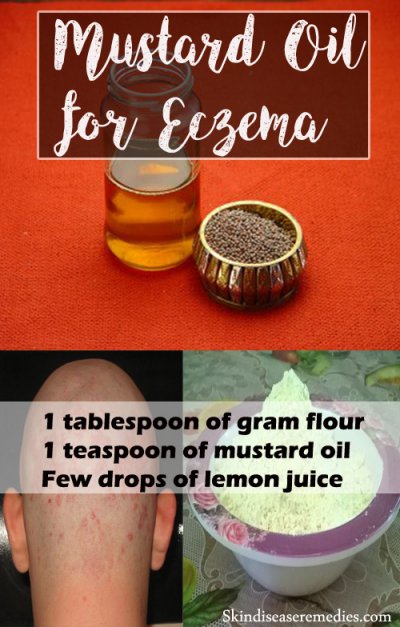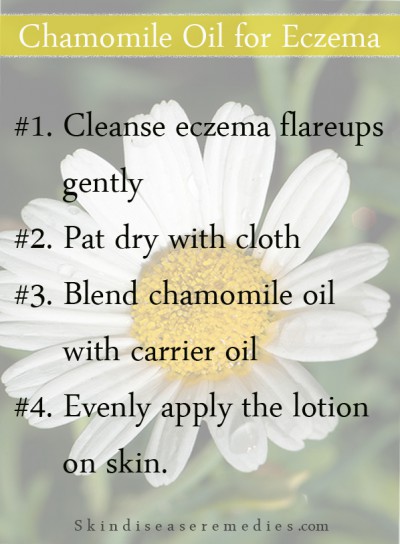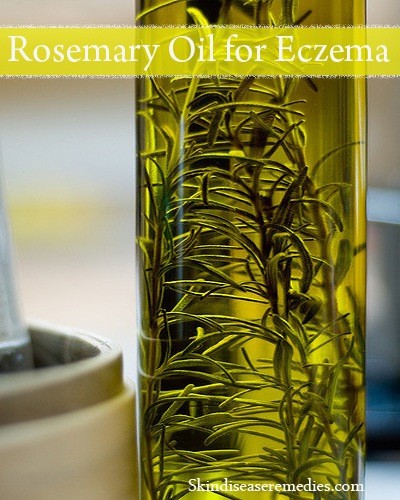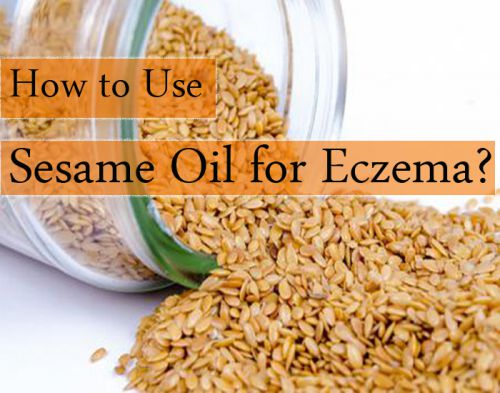Though it belongs to cannabis (marijuana) species, experts say that hemp seeds do not cause a psychotropic reaction. Instead, it benefits your health and skin. Don’t skip you’ll learn how to use hemp seed oil for eczema in this article.
Hemp seeds are packed with polyunsaturated and essential fatty acids namely omega- 3 & omega- 6, which can enhance overall functioning of the skin.
Anecdotal reports claim that ingesting hemp seed oil or its topical application will treat chronic skin ailments like eczema and psoriasis.
The inclusion of hemp seeds in food products is prohibited in Australia; anyhow it’s permitted in New Zealand in 2002. (1)
Before you jump on to benefits of hemp seed oil, I’d like to write few lines on this chronic skin ailment.
Jump to: How to Use
How Does Eczema Start?
Researchers state that specific cause of eczema is unknown. However, hereditary and other external factors are held responsible for this adverse reaction.
Rashes, scaly skin, extreme itching and oozing flare-ups are common symptoms of this ailment.
Unfortunately, you can’t treat eczema permanently. Even with steroid creams and natural remedies, eczema can’t be cured. However, dermatologist recommends staying away from irritants that may trigger the reaction. (2)
Can Hemp Seed Oil Treat Eczema?
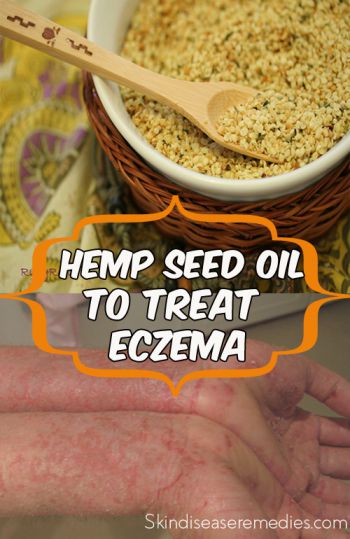
Though there is no strong scientific evidence to back its ability to treat atopic dermatitis, anecdotal reports claim to be effective. (3)
Below listed are exceptional benefits of this natural oil that can reduce eczema inflammation.
- Omega -3&6 fatty acids housed in this oil help to retain lost moisture over the skin.
- The hydrating activity of hemp seed oil helps to eliminate dry skin and itching.
- The nutritional ability this oil strengthens skin cells and enhance the healing process.
- Essential fatty acids make the skin smooth, elastic and reduce inflammation.
- Internal consumption of hemp seed oil will emit toxins and other waste from the body, which ultimately benefit your skin.
- Edestin and albumin packed in hemp seed improve digestion and also avoid allergic reaction including eczema on the skin. (4)
- High concentration of gamma linolenic acid enhance your overall skin functioning. It makes your skin smooth, well-hydrated, supple and free from ailments. (5)
- Vitamin A, E, D and B-complex housed in this oil, penetrates deep into the skin and enhance collagen production, thwart free radicals, regenerate cells, locks moisture, protect skin from harmful UV rays and exfoliate dead skin cells.
How to Use Hemp Seed Oil for Eczema?
Dr. Axe recommends internal consumption of 2 tablespoons of hemp seeds to treat chronic skin ailments like eczema.
Studies back both internal consumption and topical application of hemp seed oil. (6)
To make it more effective depending on your skin type you can blend different natural ingredients with hemp seed oil.
#1 Hemp Seed Oil and Lavender Oil
Lavender essential oil is prominent in aromatherapy for its healing and calming ability. Stress, which is one among the triggers of eczema, can be reduced by inhaling lavender oil.
- Cleanse the affected skin to wipe dead scaly patches and impurities.
- Pat dry using a soft
- When the skin is still damp, blend unrefined hemp seed oil with few drops of lavender oil and apply it over eczema affected part.
- Leave it to dry naturally.
Avoid scratching while washing eczema flare-ups. Don’t use hot water, as it irritates your skin.
#2 Hemp Seed Oil and Avocado
- Grind 1 ripe avocado after peeling its skin.
- Add ¼ cup of hemp seed oil and 2 teaspoons of Spirulina powder.
- Blend all ingredients to form a smooth
- Before applying this facial, beauty experts recommend cleansing your skin.
- Apply the mask evenly when the skin is still damp.
- Rinse it off after 15-20 minutes. (Source)
#3 Internal Consumption of Hemp Seed Oil
As mentioned above, you can ingest hemp seeds to improve your overall health. Reports also claim that consuming 1-2 tablespoons of cold pressed hemp seed oil can treat atopic dermatitis.
Experts recommend starting with a small amount and increasing if things go well with you. This process will avoid traces of THC (delta-9-tetrahydrocannabinol) in hemp seed oil.
Fortunately, there are few beauty bloggers who made different recipes with hemp seeds. You can try them. Just sprinkle 2 tablespoons of hemp seeds in your salad or yogurt and ingest regularly.
#4 Hemp Seed Oil to Treat Eczema
If you’d like to keep it simple, wash your skin with water and pat dry.
Take organic or unrefined hemp seed oil from a local store and apply it over prewashed skin.
Start with small amount and leave it to dry naturally.
It’s better to patch test before applying it over the face.
#5 Shea Butter and Hemp Seed Oil
If you’ve more time and zeal to try new things on our skin, blend hemp seed oil, shea butter and lavender oil in required amount.
Mix all ingredients and apply it over prewashed skin.
You can replace shea butter with cocoa butter and blend it with hemp seed oil.
Hemp Seed Oil for Baby Eczema
Though there are few health related blogs to claim it effective towards infants. I personally recommend consulting your physician before trying it over your baby’s skin.
Because there are few cases, where even natural oils irritated adult’s skin. So, its not safe to use them directly. Consult physician and patch test before using it.
How to Store and Buying Tips
Go for cold pressed hemp seed oil. Also, check ‘best before’ date prior purchasing the product.
Once you opened the container, place it in an airtight container. You can refrigerate it for 1-year use. However, read instructions given by the manufacturer.
Important Tips
- Prevent eating foods that may trigger eczema. (Check the list here)
- Avoid contact with substances that irritate your skin.
- Avoid scratching repeatedly, it’s difficult to stop but moisturizing will help you out.
- Drink enough water to hydrate your skin from inside.
- Practice hygienic lifestyle.
- Patch test before using hemp seed oil to treat eczema.
- Consult doctor to treat this ailment.
- Include vitamin rich diet to improve the overall functioning of the skin. (source)
- Avoid moisture over the affected part, as bacterial infection triggers with sweat.
- Avoid stress by taking enough sleep and regularly mediate if needed.
- Regularly use your natural remedy to treat this ailment.
Did you ever use hemp seed oil for eczema? Your views are valuable to us, comment below.
Stay happy. Stay healthy.

